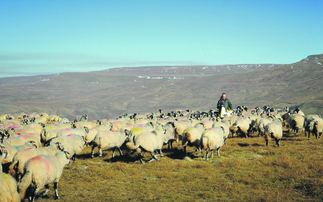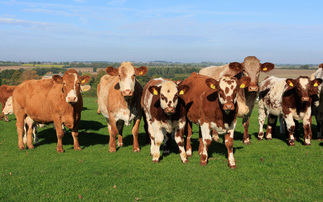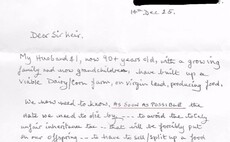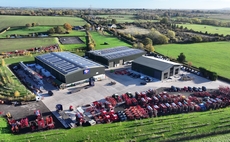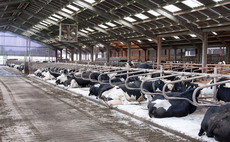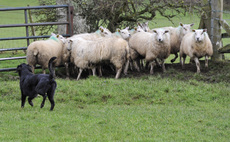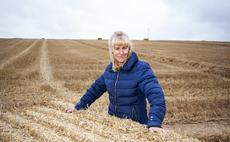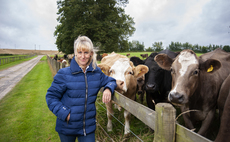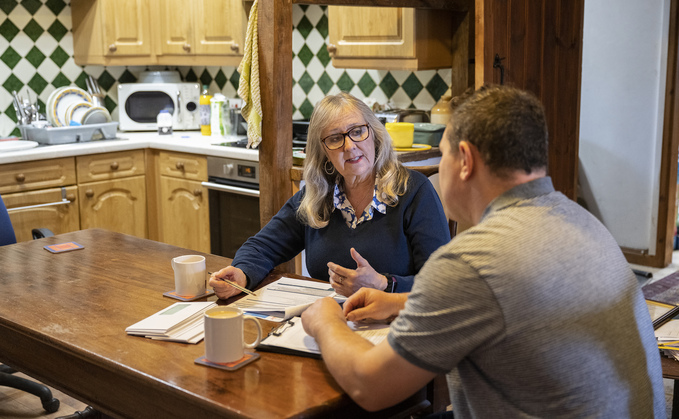
Securing a job on a farm involves demonstrating skills, knowledge, and adaptability to potential employers.�� And whatever the role, performing well at the interview is crucial.
Whether you are looking for a role in farm management, as a herdsperson, calf rearer or general farm worker, start by researching the farm you are applying to. "Understand its size, the types of livestock, and its reputation," says Paul Harris, chief executive at staff specialist REAL Success. "This knowledge will help you tailor your responses and questions at the interview, showing genuine interest and initiative.
READ NOW:��Warmer weather increases bluetongue risk, says Chief Veterinary Officer
"Many farms have Facebook or Instagram pages, and some have websites, so it is easy to get some background information."
Identify the essential skills and experiences that are most relevant to the role, he adds. "Be prepared to discuss your competencies confidently, whether that is machinery operation, livestock care, or crop management. Highlight any qualifications, training, or education that could give you an edge."
Preparing for the interview
Dressing the part
While farm work is practical and often dirty, presenting yourself neatly for an interview is essential says Mr Harris. "Clean, smart-casual attire shows you are serious about the position but understand the farm environment too. For example, clean jeans, a shirt or smart top, and boots could be appropriate."
Questions to ask
Asking insightful questions can set you apart as a candidate says Mr Harris who advising asking:
- What are the farm's biggest challenges and opportunities, and how can you help address them?
- What is a typical workday and expectations for the role?
- What are the opportunities for learning and advancement?
- What is the farm's approach to sustainability and technology?
"Ensure you begin your questions about the role and what is expected of you rather than immediately asking about the salary or accommodation – these subjects should be the last, not the first, questions you ask," says Mr Harris.
Responding to the employer
- Be honest and direct: �������� are often direct and appreciate honesty. Be clear about your skills and experience levels. If you lie about your abilities now, it will be discovered later.
- Show enthusiasm: A passion for farming, for the welfare of livestock and a willingness to learn, can be just as important as technical skills.
- Highlight flexibility: Farm work can be unpredictable. Show that you are adaptable, can handle challenges as they come and are willing to work hard to help the farm achieve its objectives.
During the interview
Body language
Maintain good eye contact, offer a firm handshake if appropriate, and demonstrate open, positive body language. "This non-verbal communication can reinforce your confidence and capability," says Mr Harris.
Answering questions
When responding to questions, Mr Harris advises using specific examples from past experiences demonstrating your skills in overcoming challenges. "This provides evidence of your abilities and shows your problem-solving skills."
Follow-up
After the interview, consider a call, or sending a thank-you email or text to express your appreciation for the opportunity and to reiterate your interest in the role. "This small gesture can leave a lasting positive impression."
READ NOW:��Spotlight on one of the UK's oldest pedigree British Blonde herds
Landing a job on a farm requires showcasing your skills, adaptability, and passion for agriculture. "By preparing thoroughly, asking insightful questions, dressing appropriately, and communicating effectively, you can increase your chances of making a successful impression during the interview," says Mr Harris.
"Remember, it is not just about proving you can do the job – it is about demonstrating you are the right fit for the farm's culture and future."
��






